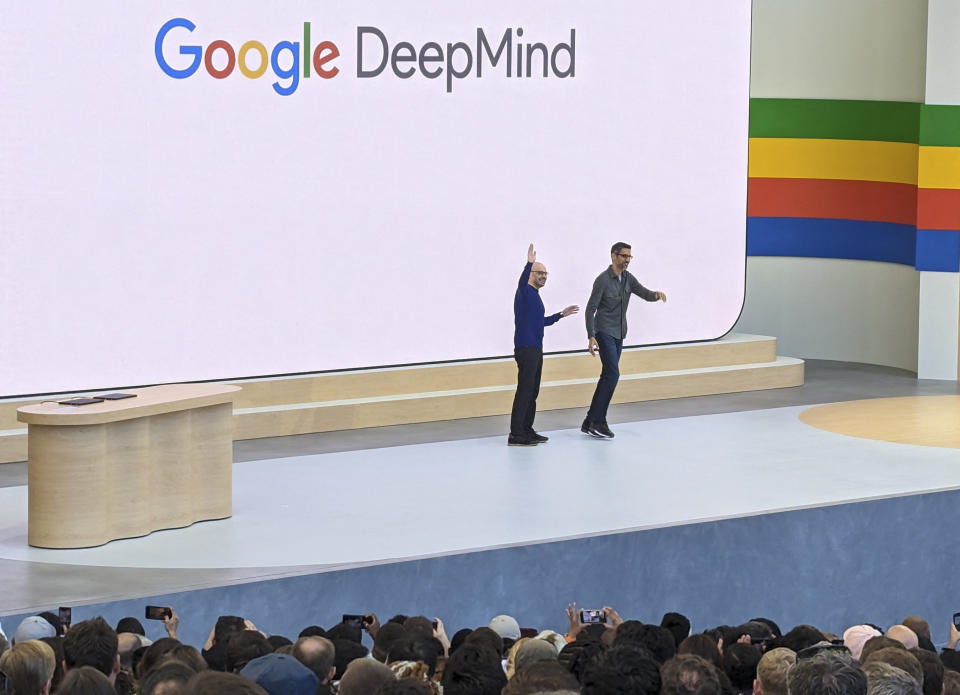Investors are getting tired of waiting for Big Tech companies like Alphabet (GOOG, GOOGL), Microsoft (MSFT), and Amazon (AMZN) to deliver on their AI revenue promises. That’s the main takeaway from this past earnings season as companies continue to plow money into their ambitious AI offerings without offering much insight into when it will all pay off.
Google parent Alphabet spent $13 billion in capital expenditures in its most recent quarter building out its AI infrastructure, up from $12 billion in the same period last year. Microsoft spent $19 billion, an increase from the $10.7 billion the company spent last year.
Amazon, meanwhile, announced during its earnings report that it spent $30 billion in the first half of the year on spending related to its Amazon Web Services platform.
Despite such massive spending levels, companies have been relatively mum on AI revenue, instead choosing to either offer a percentage of growth attributable to AI or simply pointing to their overall cloud services numbers.
The problem is that the generative AI craze just isn’t living up to the hype. At least not yet.
“[Generative AI] is not yielding benefits that are in tune with … the hype in the market, or in tune even with what customers were expecting out of this,” explained Gartner analyst Arun Chandrasekaran.
“That’s kind of the narrative that we see when we talk to enterprise CIOs today.”
Those benefits will come as generative AI technologies continue to mature, but, experts say, it won’t happen overnight.
Too fast with too little benefit
There are two issues at play for generative AI. The first is that tech companies are rolling out new AI models and platforms too quickly for their customers to keep up, and the other is that the technology is still relatively new.
“What is happening today is we see fast-paced and kind of furious innovation, and the CIOs are saying, ‘Hey, this is just coming too fast at us. We want you to slow down a little bit, and we want you to make sure that the products that you’re building, or the models that you’re building, actually work very well before you go and build that next model’, ” explained Chandrasekaran.
It’s not just the speed at which companies are pumping out models, but also whether their customers can understand and trust them.
“It’s going to take a while to mature and understand how organizations are going to utilize it effectively,” explained Ari Lightman, professor of digital media and marketing at Carnegie Mellon University’s Heinz College of Information Systems and Public Policy.
In other words, companies won’t begin signing up for enormous, long-term AI software plans until they’re confident that the platforms are the right fit for them and that their employees will actually benefit from them.
That’s not the kind of news that investors, who have seen the meteoric rise of Nvidia (NVDA), want to hear. They want 100%+ stock price gains and massive jumps in revenue.
But Nvidia offers a fundamentally different product than Microsoft or Amazon or Google. Nvidia is laying out the hardware to power AI systems. So for any of the Big Tech firms to even get into the AI business, they need Nvidia’s chips. Because of that, Nvidia is making money by the boatload on AI now.
For the company’s fiscal Q1 2025, Nvidia reported $26 billion in revenue. That’s just shy of the $27 billion in revenue Nvidia brought in in all of 2023. To say Nvidia is raking in money is an understatement. And it’s all thanks to its AI chip sales.
Major cloud providers, meanwhile, need more time to develop their AI software and figure out how their customers will eventually use it. And even then, they’ll inevitably need to add or remove features depending on user feedback. That process is likely to take years, and it’s also why software makers aren’t seeing the kinds of massive returns on their investments Nvidia has.
“When we really think about the growth of the AI market, I don’t think anyone’s wrong with how high they think the market can go,” said Forrester principal analyst Christopher Gilchrist. “I just don’t think that the timeframe in which shareholder expectations or market expectations are putting it, I don’t think that’s realistic at all.”
In its most recent quarterly earnings report, Microsoft said its AI efforts contributed 8 points of growth to its Azure business. But since Microsoft doesn’t tell us exactly how much its Azure segment makes, it’s not exactly a helpful number. Google and Amazon are equally opaque on their AI-powered revenue.
How long does the timeframe look for a true return on investment then? According to Gilchrist, companies like Microsoft, Google, Amazon, and other AI software providers could begin to make meaningful cash on their AI sales within the next three years. In some cases, however, it could take as long as five to seven years.
So, strap in. Because it’s going to take a while for generative AI software to live up to the hype.
Email Daniel Howley at [email protected]. Follow him on Twitter at @DanielHowley.
Read the latest financial and business news from Yahoo Finance












